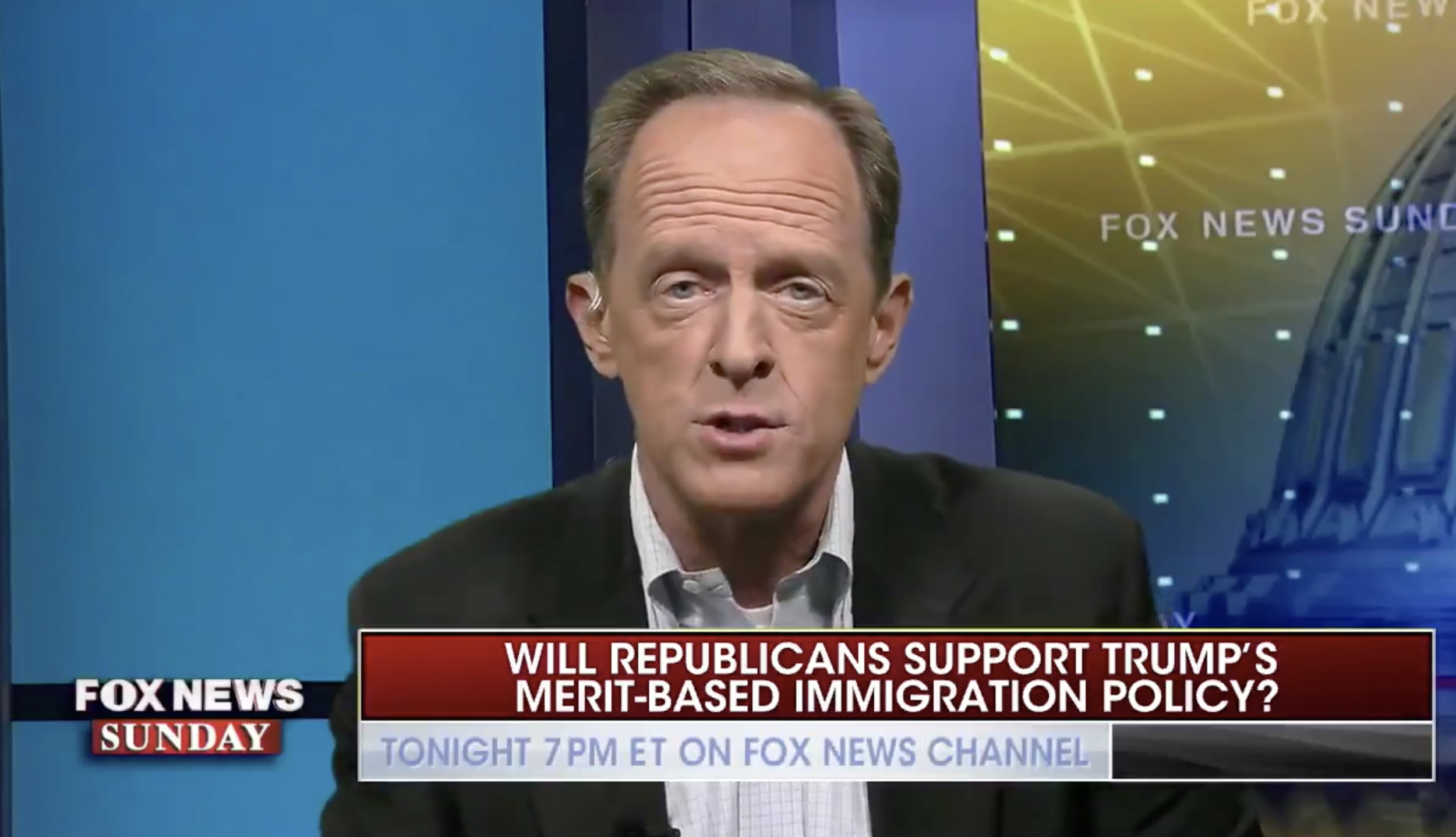
President Donald Trump last week unveiled his latest proposal for immigration reform, part of which involves prioritizing a potential immigrant's skills and education. However, one prominent Republican senator said Sunday that the U.S. needs to take in a wider range of people from the outside world.
Under Trump's proposal, known as the "Build America Visa," immigration applicants would be judged on a point system.
"You will get more points for having a valuable skill and offer of employment and advanced education or a plan to create jobs," the president explained last week.
Appearing on Fox News Sunday, Pennsylvania Republican Senator Pat Toomey simultaneously agreed with the Trump administration's call for higher-skilled immigrants while also expressing the sentiment that these are not the only people the U.S. should accept.
"I think people who come to this country wanting to build a better life for themselves and their families, they contribute to America. They help to build this country, just as my relatively uneducated and penniless grandparents did when they came here," said Toomey.
The senator called it a "no-brainer" for the U.S. to want to attract and keep the "best and brightest from around the world," many of whom, he noted, already come to the U.S. for their education. "[T]hen we ship them out so that they can compete against us, rather than welcoming us, so I fully embrace the idea that these people with greater skills and education and knowledge should be welcome."
At the same time, said Toomey, "I think people with lower skills can contribute as well, so I would be open to expanding that category as well."
.@SenToomey talks on immigration and the new plan by President Trump last week pic.twitter.com/HteCzTTXXM
— FoxNewsSunday (@FoxNewsSunday) May 19, 2019
Some have criticized the Trump plan — created by his adviser and son-in-law Jared Kushner, who has no backround or prior experience in immigration reform — as focusing too intently on these so-called "best and brightest" at the expense of welcoming the full range immigrants which could ulimately contribute more to the country.
"The best way to think about this is that when immigrants are different from native workers, they come in and they do things differently from natives, and they allow everyone to specialize more in what they are doing best," Jennifer Hunt, the James Cullen Chair in Economics at Rutgers University, recently told Newsweek. "That increases the efficiency of the economy, creates more output for everyone, increases GDP per capita for natives and benefits the immigrants as well. It's that contribution of the unskilled immigrants that I think people overlook when they really push the merit-based system, or what in other countries is called the point system."
The White House's immigration reform proposal is just that — a proposal. It would need the backing of Congress to become a reality, and that appeared unlikely to happen.
Speaker of the House, Democrat Nancy Pelosi responded to the plan by claiming that the White House had "repackaged the worst of its past failed immigration plans: Greenlighting the Administration's barbaric family detention policies; reviving the president's ineffective and wasteful wall; completely abandoning our patriotic and determined Dreamers and gutting our asylum and refugee protections."
She called the notion that Trump's immigration criteria are "merit-based" the "height of condescension."
Even some Republicans on Capitol Hill expressed doubt that Trump's proposal would ever come to fruition — at least in the foreseeable future.
"I don't see that the will is there to do it," GOP Senator Shelley Moore-Capito of West Virginina told CNN last week. "I commend the White House and the President for what I think is going to end up to be sort of a broad outline of things that are important, but I'm unfortunately pessimistic as to what the future holds. I just think both sides are going to have a hard time getting together on this."
Uncommon Knowledge
Newsweek is committed to challenging conventional wisdom and finding connections in the search for common ground.
Newsweek is committed to challenging conventional wisdom and finding connections in the search for common ground.
About the writer
To read how Newsweek uses AI as a newsroom tool, Click here.








